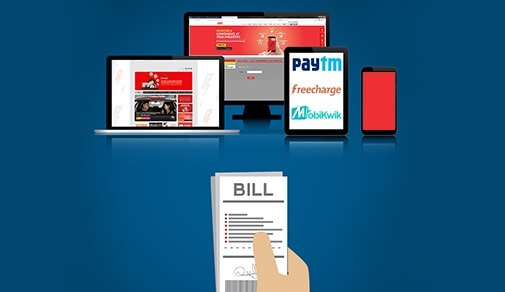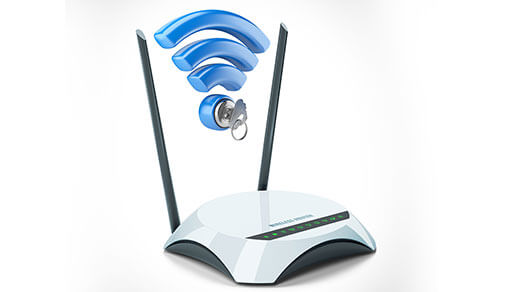
Are you trying to decide between getting a 100 Mbps vs 150 Mbps internet speed for your home or want to know answers to 'is 100 mbps speed good?' In this article, we will explore what is Mbps, what is the full form of mbps, how much mbps Is good, how much is 100 mbps of data, the differences between the two options to help you make an informed decision that suits your needs.
What is Mbps?
Mbps stands for megabits per second, and it is a unit used to measure the speed of an internet connection. The higher the Mbps, the faster the internet speed. When you see an internet plan advertised as 100 Mbps or 150 Mbps, it means that is the maximum speed at which you can download and upload data on that connection.
What is the Full Form of Mbps?
The full form of Mbps is megabits per second. It is different from MBps, which stands for megabytes per second. One byte is equal to 8 bits, so when you see an internet speed measured in Mbps, you will need to divide it by 8 to get the speed in MBps.
How Much Mbps is Good?
The ideal internet speed for your home depends on your usage. If you have a small household and mainly use the internet for browsing, streaming movies, and light gaming, a speed of 100 Mbps should be sufficient. However, if you have a larger household with multiple devices connected simultaneously, or if you engage in activities that require high bandwidth such as 4K streaming or online gaming, a speed of 150 Mbps might be more suitable.
How Much is 100 Mbps of Data?
To put it into perspective, with a 100 Mbps internet speed, you can download a file of 1 GB in approximately 1.25 minutes. This speed allows for smooth streaming of HD content on multiple devices and fast downloading of files.
Is 100 Mbps Speed Good?
100 Mbps speed is considered good for most households with moderate internet usage. It provides enough bandwidth for streaming, browsing, and downloading without experiencing any lag or buffering. However, if you have a larger household with heavy internet users, you may want to consider upgrading to a higher speed like 150 Mbps for optimal performance.
100 Mbps vs 150 Mbps
100 Mbps
- Ideal for households with light internet usage
- Suitable for browsing the web, streaming music, and video chatting
- Can support multiple devices simultaneously
- May experience slower speeds during peak usage times
150 Mbps
- Best for households with moderate to heavy internet usage
- Great for streaming HD video, online gaming, and downloading large files
- Provides faster speeds and more reliability
- Less likely to experience lag or buffering issues
What is 150 Mbps Internet Good For?
150 Mbps internet is perfect for households that have several users who are constantly streaming, gaming, or downloading large files. With this speed, you can enjoy seamless HD video streaming, online gaming without lag, and quick downloads without any interruptions. It's also ideal for large families or shared living situations where multiple devices are connected to the internet at the same time.
What is 100 Mbps Internet Good For?
On the other hand, 100 Mbps internet is more suitable for households with lighter internet usage. This speed is sufficient for basic web browsing, social media, and video streaming in standard definition. While it can support multiple devices, heavy users may experience slower speeds during peak hours. If you have fewer devices connected and primarily use the internet for light activities, 100 Mbps may be a cost-effective option for you.
Pricing and Value Proposition
When comparing the pricing of 100 Mbps and 150 Mbps internet plans, it's essential to consider the value you are getting for your money. While a 150 Mbps plan may be slightly more expensive, it offers faster speeds and greater reliability, making it a worthwhile investment for households with high internet usage. On the other hand, a 100 Mbps plan may be more budget-friendly for those who do not require ultra-fast speeds.
Internet Usage Requirements
To determine which internet speed is better for your home, consider your specific internet usage requirements. Ask yourself how many devices will be connected, what activities you frequently do online, and whether you prioritize speed and reliability. By evaluating your needs, you can make an informed decision on whether 100 Mbps or 150 Mbps is the best option for you.
Conclusion:
In conclusion, choosing between 100 Mbps and 150 Mbps for home internet depends on your household's usage habits and preferences. If you require faster speeds, greater reliability, and seamless performance for multiple users, 150 Mbps may be the better choice. However, if you have light internet usage and prioritize cost-effectiveness, 100 Mbps could meet your needs. Evaluate your requirements carefully to make the right decision for your home internet connection.
Be Part Of Our Network
All Categories
- BUSINESS INTERNET
- Router
- Internet Security
- Wi-Fi Connection
- Wi-Fi Network
- Internet Broadband
- smartfiber
- Internet Speed
- TV Streaming
- Wifi Connection
- BEST BROADBAND PLANS
- BROADBAND PLANS | 5GHz
- 2.4GHz
- 5GHz frequency
- 5GHz WiFi frequency
- 2.4GHz frequency
- LDRs
- LONG DISTANCE RELATIONSHIP
- ACT Fibernet
- wifi as a service
RECENT ARTICLES

Find the perfect internet plan for you!















